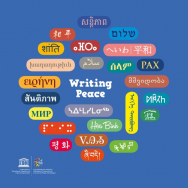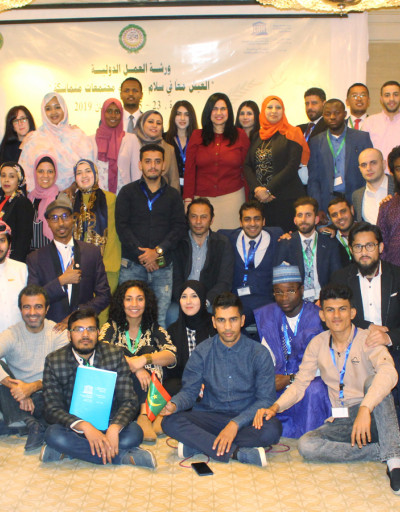From 23 to 25 April 2019, the UNESCO Office in Cairo, Egypt, organized capacity-building activities and workshops to introduce young people and trainers to some innovative methods. One of these methods, ‘Story Circles’, builds on the storytelling tradition present in all cultures and adapts it to the transmission of intercultural competence. By sharing their personal experiences in front of a small group, participants develop emotional bonds and experience a transformative process that enhances their listening skills, empathy, respect, open-mindedness, self-awareness and awareness of others.
This method, which UNESCO is testing in several countries around the world, is presented in detail in the Manual for Developing Intercultural Competencies, published in 2020 (UNESCO-Routledge).

In addition, during the ‘Writing Peace’ workshop, 50 teachers and students from twelve schools from Cairo to Aswan were introduced to another approach to cultural diversity, based on the exploration of the different writing systems existing around the world.
Thanks to the handbook Writing Peace, published by UNESCO, the participants became more aware of the diversity of our languages and cultures, and above all of their evolution, how much they have moved and borrowed, and how they have contributed to the shared history of humanity.

This training workshop was the third in a series organized within the framework of the Global Writing Peace Piloting (GWPP), in which 42 countries participated during 2019.
With the other workshops organized in Cairo, the project is part of the International Decade for the Rapprochement of Cultures (2013–2022) for which UNESCO has been designated the United Nations’ lead agency.




